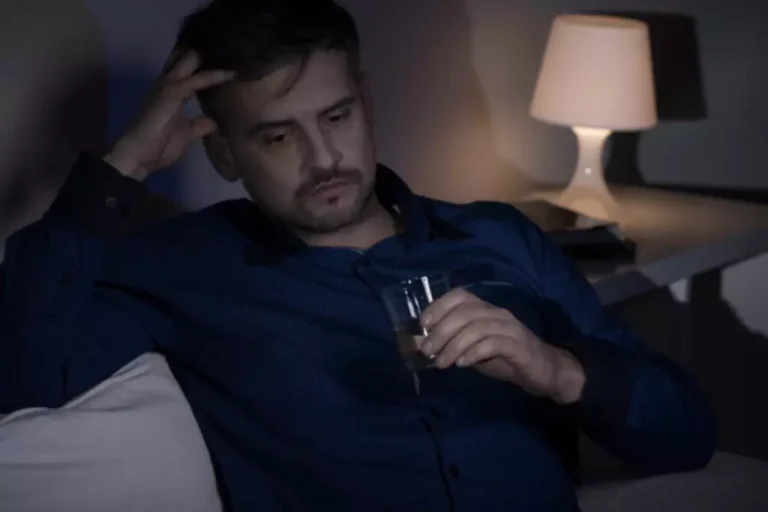
For most people with alcohol withdrawal, symptoms tend to be mild and include anxiety, restlessness, headaches, and a craving for alcohol. However, in about every fifth person with alcohol withdrawal, symptoms are more severe and may include hallucinosis, seizures, or even delirium. The https://ecosoberhouse.com/article/making-living-amends-during-addiction-recovery/ clinical presentation consists of a spectrum of signs and symptoms, including autonomic hyperactivity, tremulousness, restlessness, seizures, and potentially life-threatening alcohol withdrawal delirium.
- During a crisis, people who are hard of hearing can use their preferred relay service or dial 711 then 988.
- If you experience PAWS, your doctor may prescribe gabapentin to help you manage your symptoms.
- Other ways to get help include talking with a mental health professional or seeking help from a support group such as Alcoholics Anonymous or a similar type of self-help group.
- “I’m very irritated at times. I feel really good about my choice to quit drinking. I have headaches often and I have weird and bad dreams. Every night I dream that I’m having a drink again.”
- They should also make sure you attend your counseling appointments and visit the doctor regularly for any routine blood tests that may be ordered.
Prevention of further drinking
- “Haven’t listened to the little voice. Thinking about all the money I’m saving. The only issue besides the little voice is insomnia, but I’m getting some sleep. My blood pressure and heart rate have come down to just about normal.”
- Symptoms of alcohol withdrawal tend to peak 24 to 72 hours after your last drink.
- They usually appear between one and three days after your last drink and are usually most intense four to five days after your last drink.
- When a person stops drinking suddenly, their body experiences a degree of shock as the nervous system struggles to adapt to the lack of alcohol, which can lead to alcohol withdrawal syndrome.
- Many prescription and legal nonprescription substances can also cause withdrawal symptoms when individuals stop consuming them, even if they were taken as directed by a physician.
- Individuals experiencing alcohol withdrawal syndrome should receive treatment according to the severity of their condition.
When in doubt, clinicians can refer to the DMS-V criteria for diagnosis. Treatment of PRES is generally supportive.1 In hypertensive patients, blood pressure-lowering medications should be promptly instituted. Where possible, other inciting factors (e.g., calcineurin inhibitors) should be discontinued.1 In patients with alcohol withdrawal, management is best done pro-actively (i.e., prior to the development of complications). Several instruments exist (e.g., CIWA-Ar score) 6 to aid clinicians in the early identification (and treatment) of such alcohol withdrawal syndrome symptoms complications.
More on Substance Abuse and Addiction
If an individual can hang on during that time frame, the symptoms will resolve just as quickly as they appeared. Symptoms usually begin within 6–12 hours of the last drink and can last for a few days. Individuals experiencing severe symptoms may require immediate treatment at the hospital treatment to minimize the risk of potential complications. This is where symptoms are usually the most severe, with some individuals displaying delirium tremens — hyperactive autonomic activity that can lead to cardiac collapse.
Better Sleep, Lower Blood Pressure

They may be more noticeable when you wake up with less alcohol in your blood. If your doctor thinks you might be going through alcohol withdrawal, they’ll ask you questions about your drinking history and how recently you stopped. By Sarah Bence, OTR/LBence is an occupational therapist with a range of work experience in mental healthcare settings. Tap into your social network to help support you through alcohol withdrawal. Find a supportive friend or family member to be with you while you withdraw and support your new non-drinking lifestyle.

Assessing Severity

Quitting alcohol consumption affects drinkers’ sleep patterns differently. Others struggle with insomnia and poor-quality sleep long after they quit drinking. If the withdrawal symptoms persist for five days, many give in and take a drink to get some relief. That’s why some people can say they quit for three or four days 100 times.
- If you try to detox on your own, ask someone trusted, healthy, and responsible to keep an eye on you as you go through withdrawal.
- If you have alcohol use disorder and want to reduce how much you drink or quit entirely, a primary care provider can guide you to resources and rehabilitation programs that can help.
- When not properly treated, AWS can progress to delirium tremens (Table 38–10).
- Currently, health experts do not know if any factors influence the timeline of alcohol withdrawal syndrome aside from how much alcohol an individual typically consumes.
- Some have the same symptoms as on day one and ask, “How long does this last?” The urge to relieve those withdrawal symptoms with a drink can be overwhelming.
Day 210
There was no mention of psychotic symptoms, abnormal speech, or observed seizure activity. His wife denied any knowledge of previous hypertension diagnosis, or illicit drug use. Individuals with alcohol withdrawal syndrome may experience nausea, anxiety, extreme fatigue, and even seizures and hallucinations.





















